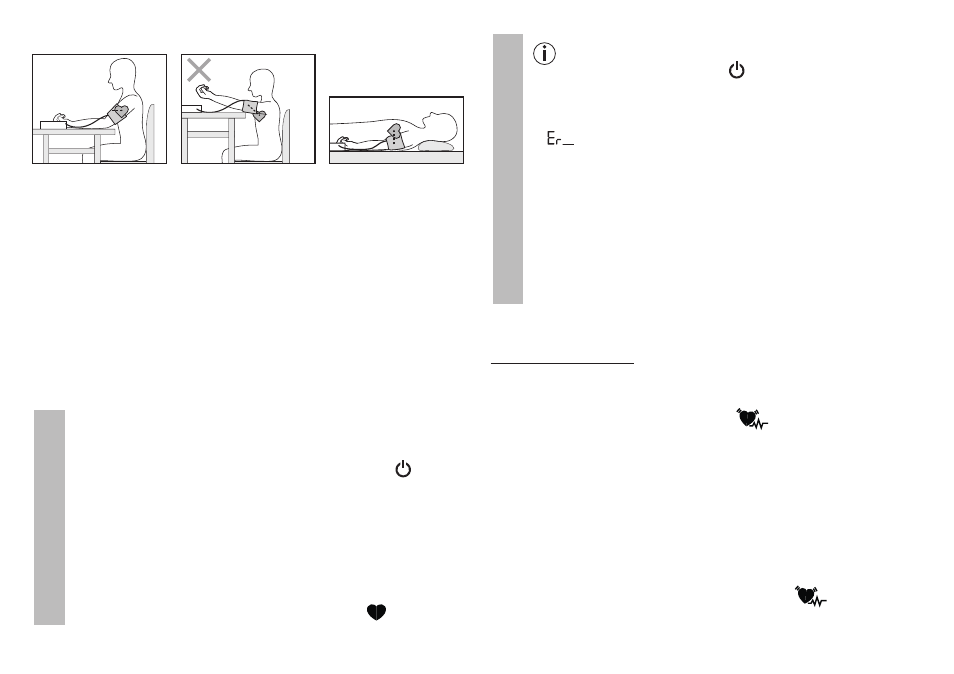Evaluating results – Beurer BM 40 User Manual
Page 19

19
Correct posture
• Rest for approx. 5 minutes before each measurement. Other-
wise there may be divergences.
• You can perform the measurement either sitting or lying down.
Always make sure that the cuff is on a level with your heart.
• To carry out a blood pressure measurement, make sure you
are sitting comfortably with your arms and back leaning on
something. Do not cross your legs. Place your feet flat on the
ground.
• In order not to distort the result, it is important to keep still
during the measurement and not talk.
Performing the blood pressure measurement
Measur
ement
• As described above, attach the cuff and adopt the pos-
ture in which you want to perform the measurement.
• Start the device with the START/STOP button .
Following the display check, during which all numbers
light up, the cuff inflates automatically.
• The cuff is inflated to 190 mmHg. The cuff’s air pres-
sure is slowly released. If you already recognise a ten-
dency for high blood pressure, you should reinflate the
cuff and increase the cuff’s pressure again. As soon
as a pulse is detected, the pulse symbol
flashes.
Measur
ement
Measuring can be cancelled at any time by pressing
the START/STOP button .
• Systolic pressure, diastolic pressure and pulse read-
ings are displayed.
•
appears if the measurement has not been per-
formed properly. Observe the chapter on error mes-
sages/trouble-shooting in these instructions for use
and repeat the measurement.
• The measurement is automatically stored.
• The device switches off automatically after 3 minutes.
Wait at least 5 minutes before taking another measure-
ment!
6. Evaluating results
Cardiac arrhythmia:
This instrument can identify possible cardiac arrhythmia
disorders during measurement and if necessary indicates the
measurement with the flashing icon
.
This may be an indicator for arrhythmia. Arrhythmia is a condi-
tion where the heart rhythm is abnormal as a result of defects
in the bioelectrical system controlling the heart beat. The
symptoms (omitted or premature heart beats, slow or exces-
sively fast heart rate) may be caused, among other things,
by heart disease, age, physical predisposition, excessive use
of stimulants, stress or lack of sleep. Arrhythmia can only be
ascertained through examination by your doctor.
Repeat the measurement if the flashing icon
is displayed
after the measurement. Please note that you should rest for
5 minutes between measurements and not talk or move dur-